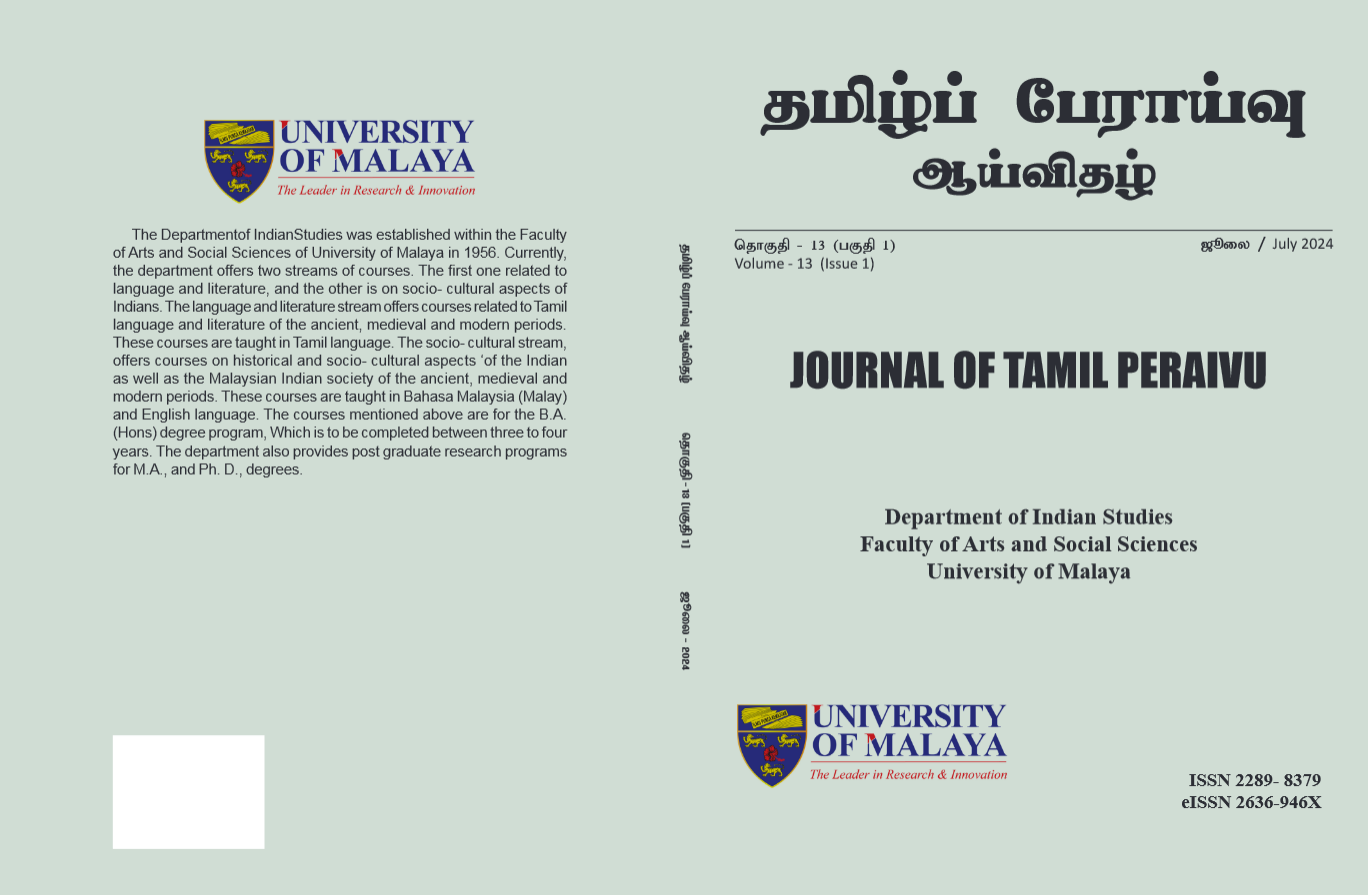சைவசித்தாந்த மெய்யியல் நோக்கில் சோமசுந்தரப் புலவரின் உயிரிளங்குமரன் நாடகம் (The play 'Uyirilangumaran' by Somasundara Pulavar from the perspective of Saiva Siddhanta Philosophy)
DOI:
https://doi.org/10.22452/JTP.vol13no1.3Keywords:
Uyirilangkumaran Drama, Saiva Siddhanta Philosophy, Somasundara Pulavar, Sri LankaAbstract
The Archaic religion in Sri Lanka is Saivism, which is characterized by its philosophical doctrine. Its true essence lies in Saiva Siddhanta, and the culmination of Saivism is Saiva Siddhanta. By elucidating the essence of the three entities—Pati (God), Pasu (individual soul), and Pasa (karma)—and transforming them into true elements, Saiva Siddhanta asserts, "By removing the impurities of the soul, one attains its essence." This philosophy, expounded by the great scholar Somasundara Pulavar, has gained recognition through various works and platforms in medieval Sri Lanka. Understanding his contemporary society well, he advocated for the acceptance and understanding of Saivism and Saiva Siddhanta, blending them seamlessly into his life. He crafted a drama titled "Uyirilangkumaran," incorporating these philosophies, which spans five acts and thirteen scenes. Pulavar addressed societal issues by aligning them with Saiva Siddhanta ideology and created the drama as a means of propagating it. However, this synthesis of Saiva Siddhanta philosophy into literary works and its interpretation poses a challenge, requiring further scholarly investigation. Somasundara Pulavar's initiative in shaping Saiva Siddhanta discourse and its pedagogy, along with the tools utilized for its dissemination, form the basis for this study. While this research primarily focuses on qualitative research methodologies, it also necessitates quantitative and evaluative methods such as surveys.



